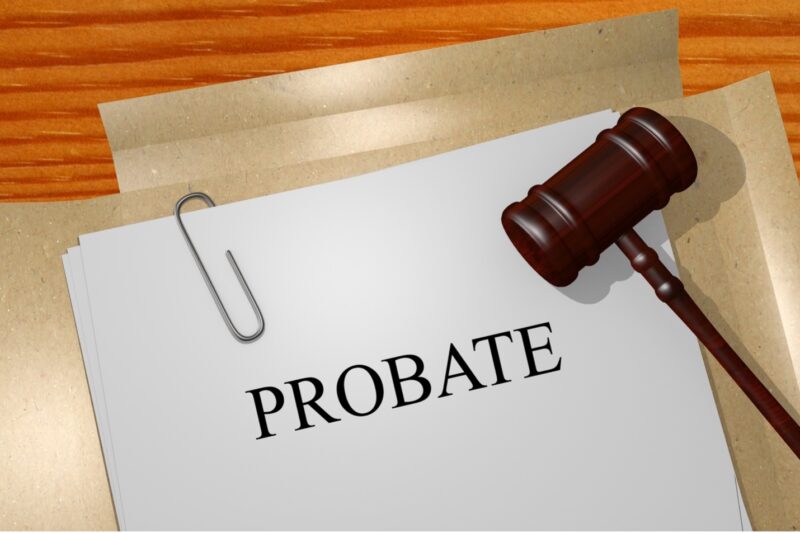Undue influence can occur in any situation that involves a contract when one party (the wrongdoer) uses means of extreme persuasion to pressure another party (the victim) into making a decision that will lead to financial gain for the wrongdoer. Although this can occur with all types of contracts, it is especially common in estate law. However, if someone who was close to the testator can prove that the elements of undue influence apply, a Last Will and Testament (will) will be unenforceable. If you believe that a loved one may have been subjected to undue influence when creating or changing a will, consider consulting with an experienced California estate planning attorney from Von Rock Law by calling (866) 720-0195.
What Is the Definition of Undue Influence?
In California, undue influence is defined by California Civil Code § 1575, according to the American Bar Association. The law states that undue influence occurs when:
- A victim places trust in a party who uses a position of authority to take unfair advantage of the victim
- One person takes advantage of another person’s “weakness of mind”
- One person takes an unjust and unfair advantage of another person’s needs or troubles
Note that undue influence is not the same as duress. In cases of duress, rather than using persuasion, the wrongdoer uses force or a threat of force, such as extortion or blackmail.
What Are the Elements of Undue Influence?
The Welfare and Institution Code section 15610.70, according to California Legislative Information, specifies four elements of undue influence. All four elements must apply to make a contract or will void and unenforceable.
A Vulnerable Victim
For someone to be a victim of undue influence, he or she must have been excessively vulnerable, and the wrongdoer must have been aware of the victim’s vulnerable state. A vulnerability could be due to:
- Illness
- Incapacity
- Disability
- Impaired cognitive function
- Dependency
- Age
- Education
- Emotional distress
Authority (or Apparent Authority) of the Influencer
The victim cannot simply have been vulnerable. The wrongdoer must also have had authority, or at least perceived authority, over the victim. Some examples of people in authority who may take advantage of a vulnerable person include:
- Family members
- Home health aides
- Caregivers
- Fiduciaries
- Advisors
- Doctors
- Legal representatives
- Spouses
- Beneficiaries of trusts
- Pastors
Evidence of Tactics
To prove undue influence, it is important to identify the tactics that the wrongdoer used to persuade the victim. Extreme persuasion tactics can include:
- Trickery
- Coercion
- Deception
- Flattery
- Intimidation
- Insinuations
- False affection
Inequity of the Result
After the other three elements have been met, the results of the undue influence must be inequitable. In addition to economic losses suffered by the intended beneficiaries, this imbalance can extend to any of the testator’s original wishes not being honored in a manipulated will.
What Are Examples of Undue Influence?
No two situations of undue influence are the same, but some general examples can show what may happen in typical cases.
Isolating the Victim
A sign of isolation is when a family member or other figure of authority keeps other people away from the victim, particularly during the months leading up to the victim’s death. Over this time, the wrongdoer may influence the victim to change his or her will.
Adapting an Estate Plan After an Illness
If a person changes his or her estate plan during or immediately after an illness, the change could suggest that someone took advantage during a time of vulnerability. The person’s family may want to look for other signs of undue influence.
Exerting Control
There are various ways a person in authority can exert control over a victim. These include withholding necessities, such as medication or food; preventing the victim from sleeping; or manipulating the information the victim receives.
Falsely Claiming Expertise
A person in a position of authority could claim to have expertise in legal matters or knowledge about property rights. This wrongdoer could then manipulate the victim into making changes to his or her estate plan — usually quickly and in secret. These changes often occur at an odd time or place.
How Does One Prove Undue Influence?
There are certain factors that a court will look for to be able to rule that undue influence occurred. First, it is necessary to show that the victim had weaknesses that made him or her susceptible to persuasion tactics. The victim may have been in a vulnerable position, a physician may have previously ruled that the testator lacked capacity, or the wrongdoer may have been keeping the victim from contacting relatives.
Furthermore, the wrongdoer must have been close enough to the victim to make undue influence a possibility. Indications of this closeness would be that the wrongdoer made arrangements to assist the victim in carrying out the decision, such as driving to appointments or even physically helping the victim sign documents. Lastly, the court will consider if the changes to the estate plan are in line with decisions that the testator made before falling ill and whether those changes were made in secret.
How Hard Is it to Prove Undue Influence?
Undue influence is often difficult to prove. Indications that someone has meddled in the will of a decedent are generally insufficient for a claim of undue influence. If a new spouse convinces a partner to leave him or her the majority of the estate and to cut children from a previous marriage out of the will, but the spouse was not vulnerable at the time, the persuasion will not be considered undue influence. To prove undue influence, it is necessary to provide clear evidence that establishes all four of the elements.
Get Legal Support for Undue Influence in Estate Planning Today
Establishing improper persuasion or control tends to be difficult because it is necessary to prove all four elements of undue influence. An attorney who is skilled in estate law may be able to help determine if you have a case. If you believe that a loved one may have been the victim of undue influence, consider contacting an experienced San Francisco lawyer from Von Rock Law by calling (866) 720-0195 to schedule a consultation today.




